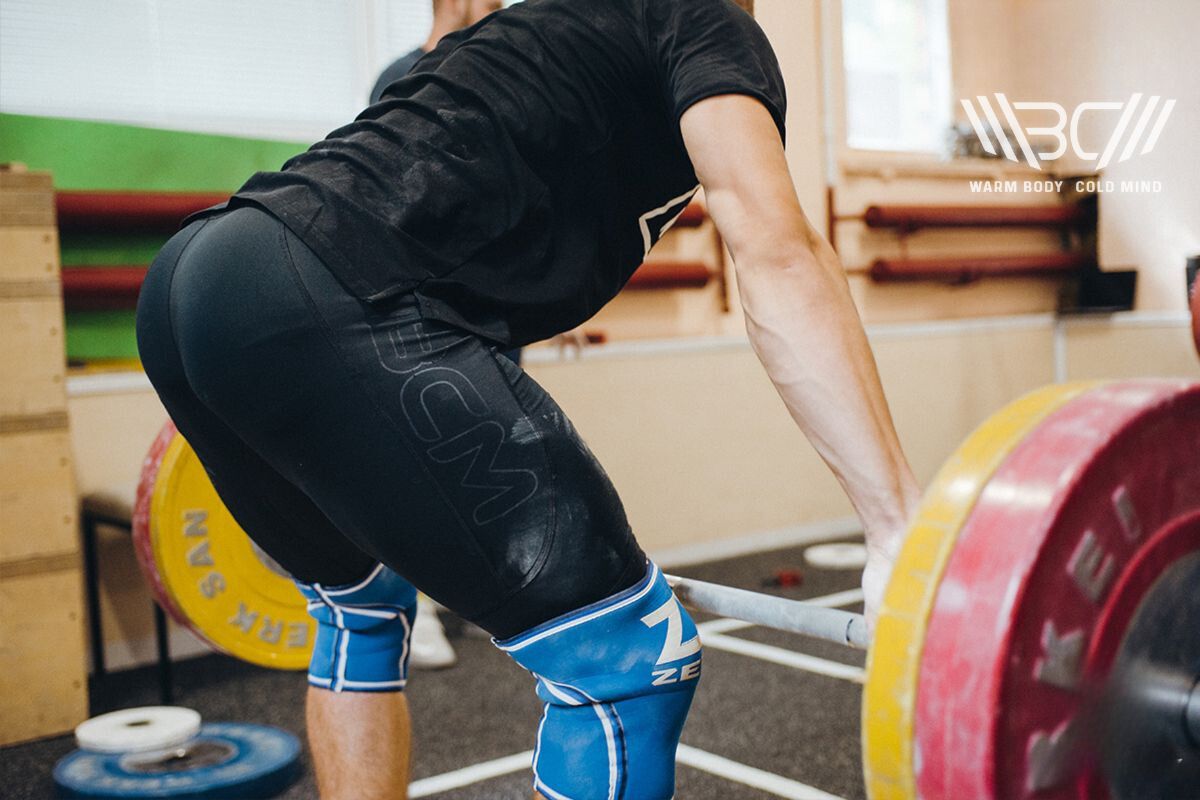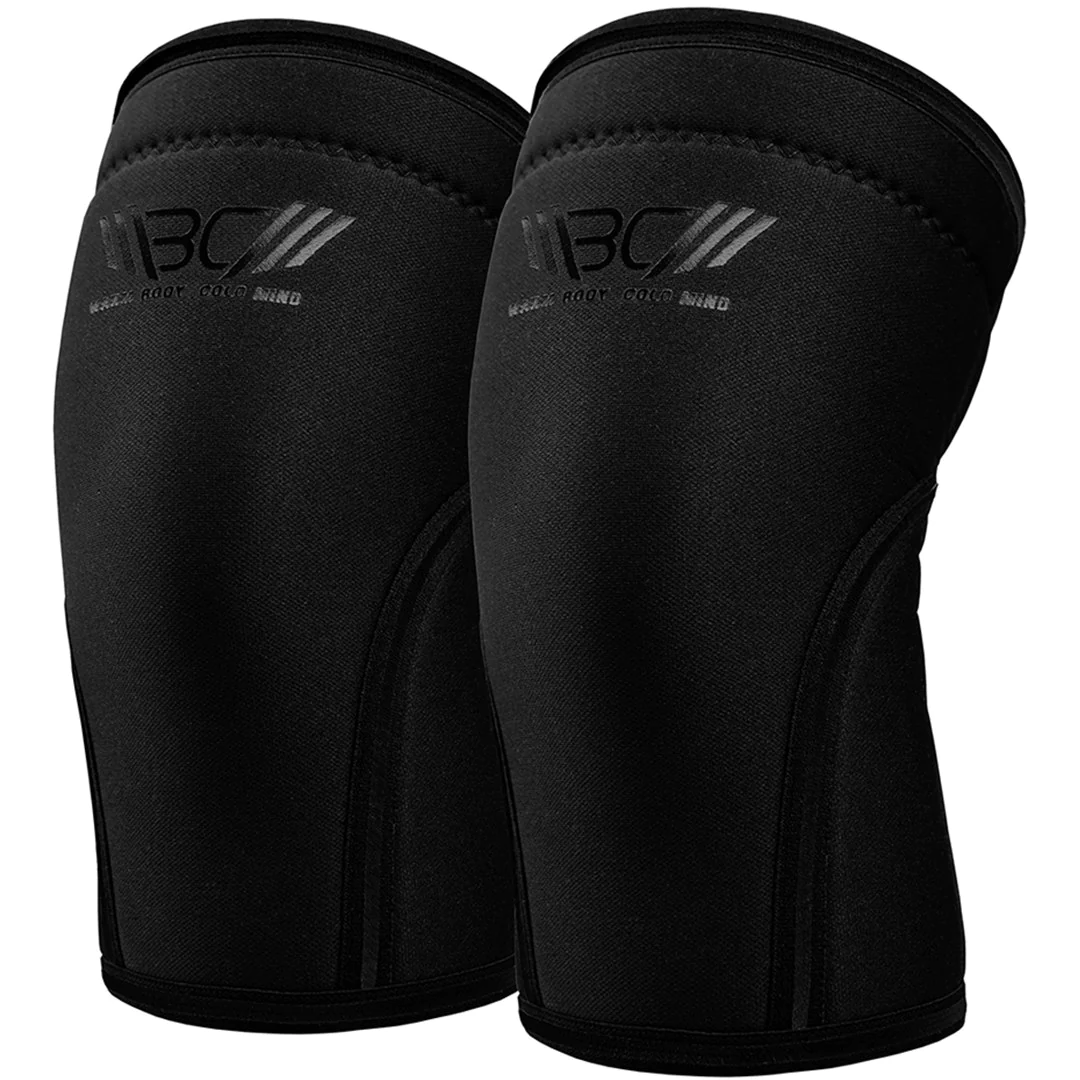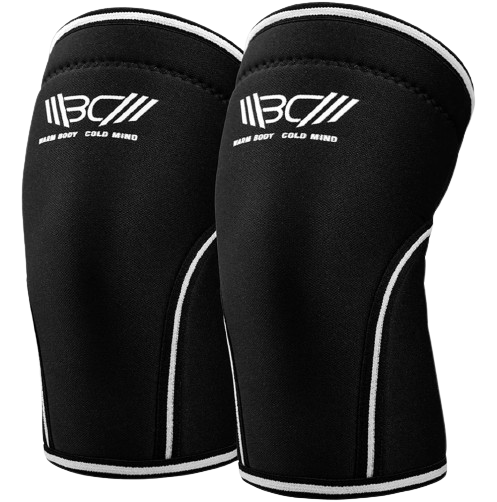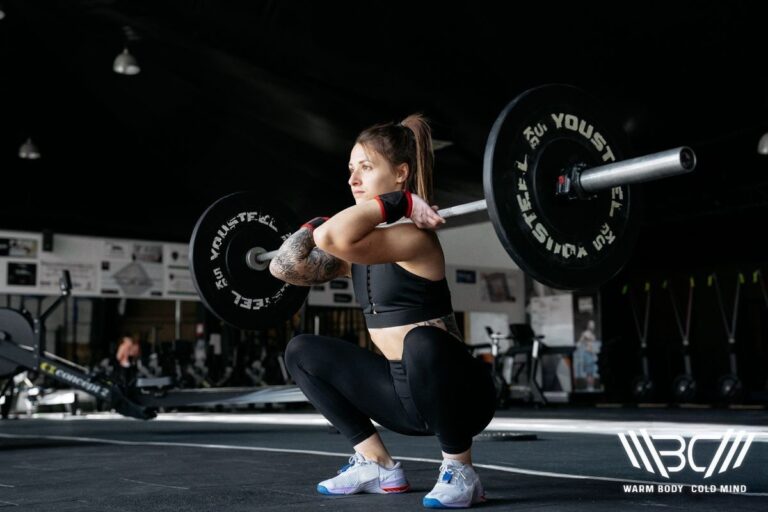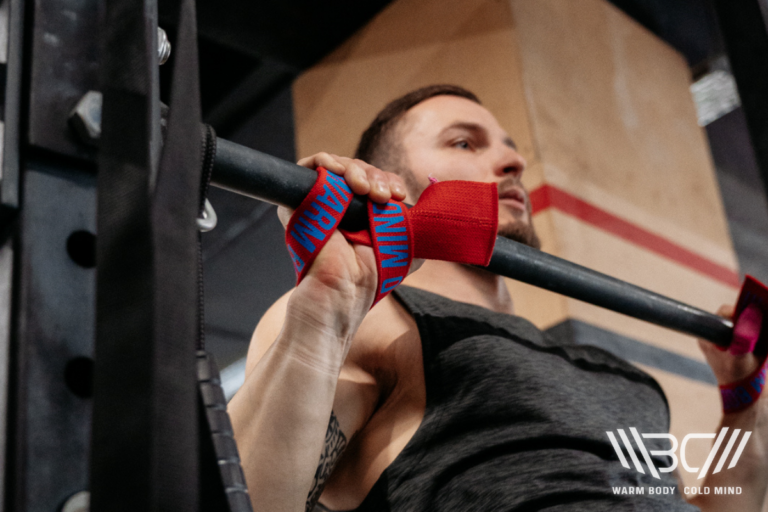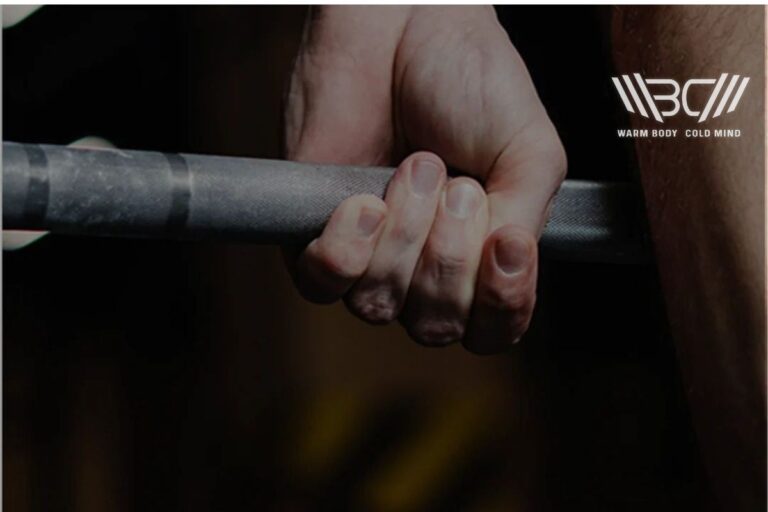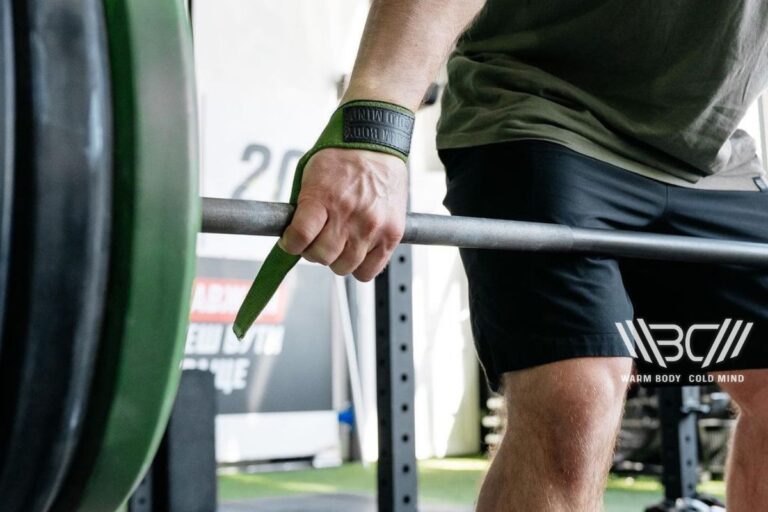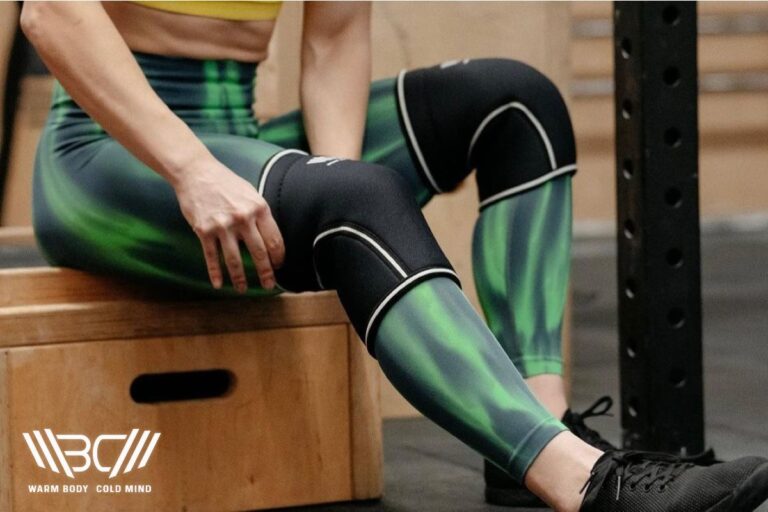How to Wash Knee Sleeves: Step by Step Maintenance Guide
You’ve probably noticed that your knee sleeves smell badly. Then, you ask yourself: What can I do to get rid of the smell? Should I purchase new knee sleeves? Should I wash it? How can I wash my knee sleeves? Can you wash knee sleeves in the washer? How can I dry it? Can you put knee sleeves in the dryer?
There’s no feeling as having your knee sleeves smell fresh, clean, and pleasant. And you want that. However, washing your knee sleeves is the right step to take.
Whether you have experience washing your knee sleeves or not, you need to know how to wash knee sleeves properly.
In this article, we will cover why you need to wash your knee sleeves. We will also discuss factors to consider before cleaning, basic cleaning methods, and how to dry your knee sleeves properly.
How to wash knee sleeves? – To wash your knee sleeves properly, hand wash them with warm water, detergent, and perhaps vinegar. Soak them for a few hours, scrub them, squeeze out water, and air-dry them till it dries completely.
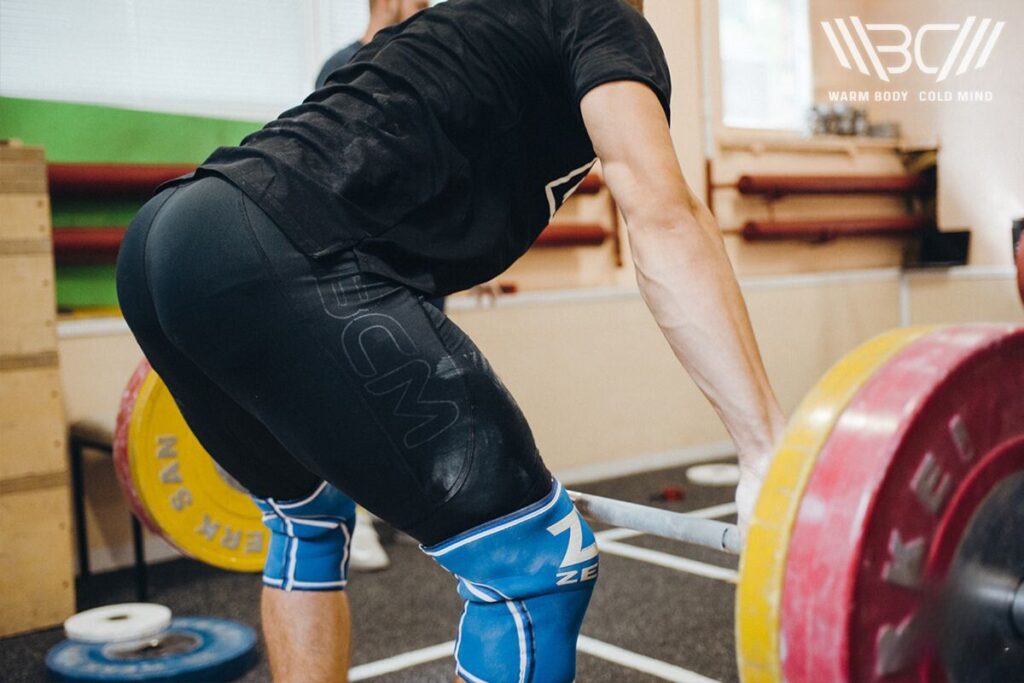
Do You Even Need to Wash Knee Sleeves?
If you use your knee sleeves once or twice a week, you need to wash them. Here are reasons why you need to wash your knee sleeves:
1. Longevity
Washing your knee sleeves frequently helps to keep their structure and elasticity in good condition. This extends the lifespan of your knee sleeves.
2. Performance
With dirt and germs thriving on your knee sleeve, you will feel discomfort during your workout sessions. Dirt and germs also impact the level of friction between your skin and the knee sleeves. This can negatively affect your overall performance.
3. Hygiene
Knee sleeves trap sweat and dirt when performing workouts. This trapped sweat and dirt can promote the activities of bacteria and germs, causing skin irritation, infections, or diseases. That’s why hygiene is vital. Prevention is better than cure.
How to Understand if You Should Wash Knee Sleeves?
Many people use their knee sleeves to perform high-intensity and low-intensity workouts once or twice weekly. They sweat during these workout sessions.
Knee sleeves generally absorb sweat and dirt. Over time, the dirt and sweat become excess, germs start breeding on it, and the knee sleeves give off a bad smell. That’s the time to wash them.

7mm Weightlifting Knee Sleeves
Discover the ultimate support with Warm Body Cold Mind knee sleeves providing stability and comfort.
Although knee sleeves may have different care instructions, types of materials, and branding, every single one will require washing at some point. This is because they’re produced with fabrics that absorb sweat.
However, how often you should wash your knee sleeves depends on factors such as your hygiene, the type of material, and the workout you use your knee sleeves for. High-intensity workouts will get your knee sleeves more dirty than low-intensity workouts. Likewise, some materials get dirty faster than others.
As a rule of thumb, you should wash your knee sleeves at least once every two weeks or after every 5 – 6 uses if they get dirty quickly. Furthermore, you should understand that knee sleeves shouldn’t be washed too frequently, which will shorten their lifespan. Still, they should be cleaned regularly to prevent germs and foul odor.
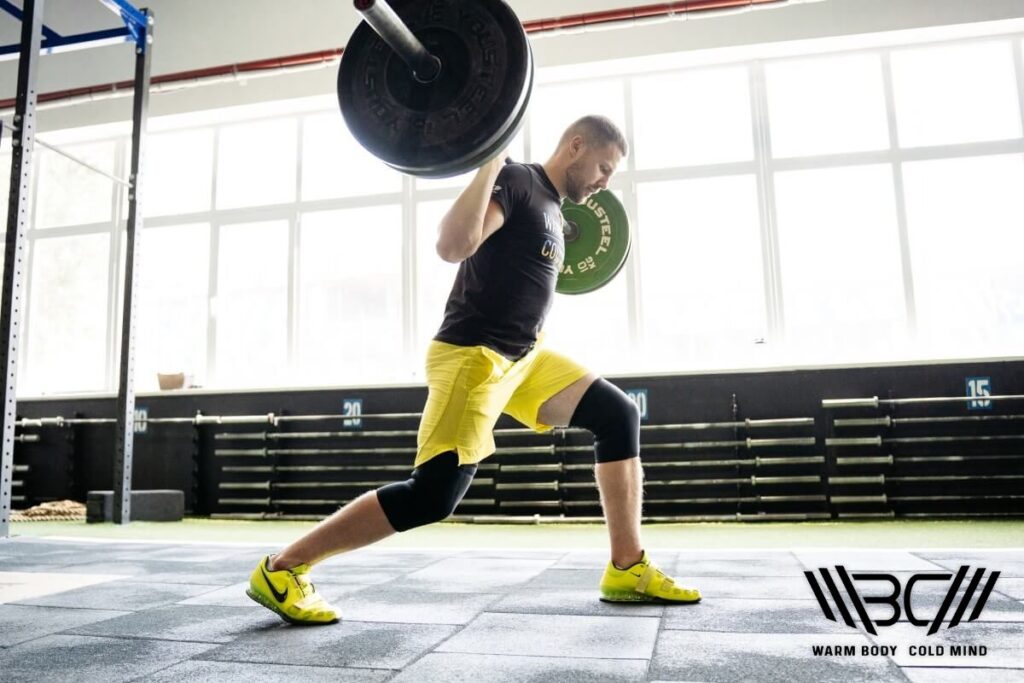
What to Consider Before Cleaning Knee Sleeves?
Before cleaning knee sleeves, it’s vital to consider several factors. They include:
1. Temperature
When washing knee sleeves, it’s essential to consider the temperature of the water. Cold water will not clean the knee well. Also, hot water will damage the fabric of the knee sleeves.
Therefore, you should use warm water to clean your knee sleeves.
Most brands strongly kick against machine-washing. However, if you are still inclined towards the machine-wash route, wash it in a cold setting. Washing on a hot setting will damage the rubber in the knee sleeves, causing brittleness.
Perhaps you’ve asked: how to shrink knee sleeves? Machine washing on a hot setting will also cause shrinkage.
Furthermore, you should check the care instructions to ensure you do everything right.
2. Fabric Type
The fabric type is another vital factor you should consider before washing your knee sleeves. You should know what type of fabric your knee sleeves are produced with.
Many companies use a mix of rubber, elastic, and neoprene in their knee sleeves.
A study comparing the effectiveness of specific materials on knee sleeves shows that different materials do not affect the performance of knee sleeves.
However, the flexibility and content of the materials will determine whether the brands permits machine washing or recommend just hand-washing.
If your sleeves are made of neoprene, and you ask: how to wash neoprene knee sleeves? Neoprene knee sleeves are generally hand-washed in a mixture of detergent and warm water.
If you’re unsure which is best for you, you can turn to your care instructions. You will get information regarding the type of materials used and the best way to wash your knee sleeves.
3. Type of Detergent
The type of detergent is a good consideration before cleaning your knee sleeves. However, the type of detergent you should use depends on your knee sleeves’ brand and its care instructions. However, you can use any type of mild detergent or a special detergent for neoprene materials.
With the numerous types of detergent, it isn’t easy to pick the right one. Most fitness coaches recommend ‘Sports’ detergents. These detergents are produced for gym products because gym products get dirtier and sinker than regular laundry products. Sports detergents are best for your knee sleeves.
Besides detergent, you can add vinegar to your cleaning mixture to eliminate any foul smell, especially when you’re not getting the right scent from detergents. Pouring in 2 – 4 ounces of distilled vinegar will do the job.
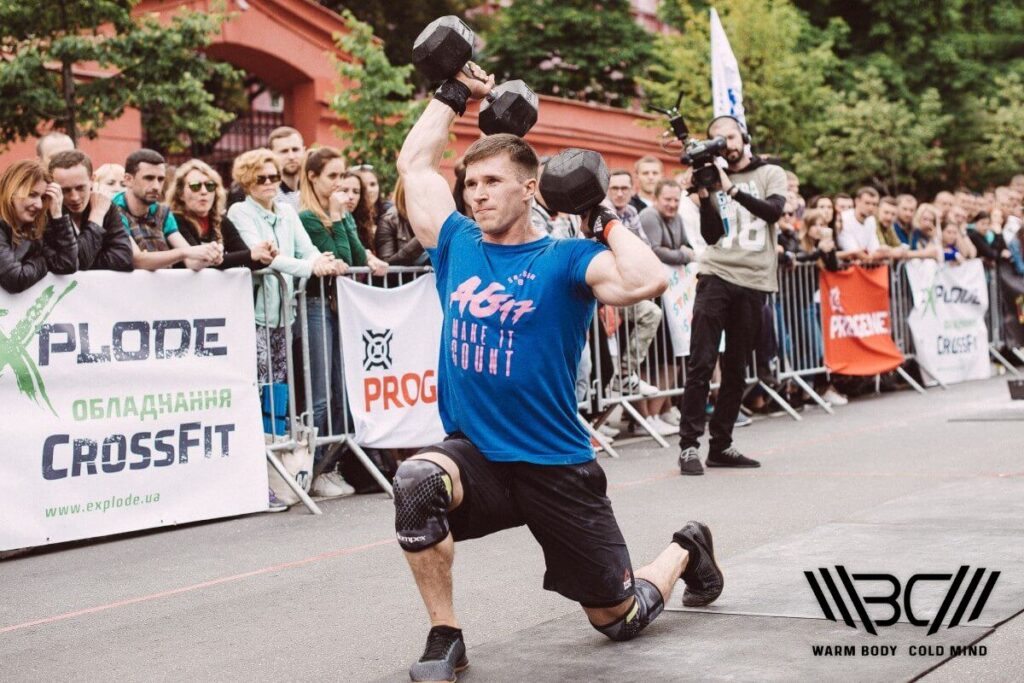
Basic Methods of Cleaning Knee Sleeves
1. Methods of Hand-Washing Knee Sleeves
Here are the steps on how to wash knee sleeves with your hands:
Step 1: Pack All Items
You need to pack all items required to clean your knee sleeves, including knee sleeves, detergent, gloves, clean & non-abrasive cloth, and a bowl or sink (wide enough to submerge your knee sleeves).
Step 2: Fill Your Bowl/Sink With Warm Water
Fill in your bowl with warm water. You can also use your sink if your sink has a stopper.
Examine your detergent tag for instructions. Most detergents recommend lukewarm water because it best removes stains and dirt.
Ensure the water temperature is not very hot because it can shrink and damage your knee sleeves.
Step 3: Pack All Items
You need to pack all items required to clean your knee sleeves, including knee sleeves, detergent, gloves, clean & non-abrasive cloth, and a bowl or sink (wide enough to submerge your knee sleeves).
Step 4: Pour and Mix the Detergent With the Water
Pour and mix the detergent into the water. Ensure the detergent is completely dissolved in the water.
Check the detergent label for instructions on the volume to use.
You can stir the detergent and water mixture to ensure it’s forming.
Step 5: Dip and Soak the Knee Sleeves
Completely dip your knee sleeves into the mixture. Next, soak the knee for a few minutes to eliminate the foul smell and germs.
Subscribe!
The latest reviews of must-have home gym training equipment, apparel, and supplements that will enhance your performance and bring you new results.
Step 6: Scrub Your Knee Sleeves With a Clean and Smooth Cloth
After soaking your knee sleeves, take a clean cloth and scrub it with the cleaning solution.
To avoid skin contact with the chemicals, you can wear your hand gloves.
Step 7: Rinse With a Cold and Clean Water
After properly washing your knee sleeves, rinse it thoroughly in cold and clean water.
Next, you can gently squeeze your knee sleeve to remove excess water and remnants of detergent. Trapped remnants of detergent can cause irritation and discomfort while wearing them. That’s why you should thoroughly rinse it earlier.
When squeezing the knee sleeves, ensure you do not scratch or twist it carelessly. This can damage its shape and elasticity.
Once water stops dripping from your knee sleeve, you can take the next step to dry it out.
Step 7: Turn It Inside-Out and Air Dry
Before air drying your sleeves, you should turn it inside out. This speeds up the drying process and removes any staunch trapped in the fabrics.
Air-dry your knee sleeves in a shaded area. Do not dry it in the sun because sunlight can shrink the material.
Most people ask: Can you put knee sleeves in the dryer? It would be best not to put your sleeves in a dryer because it will damage and shrink the material.
Allow it out in a shaded area for at least 12 hours. Sometimes, it takes up to 24 hours before your sleeves are completely dry.
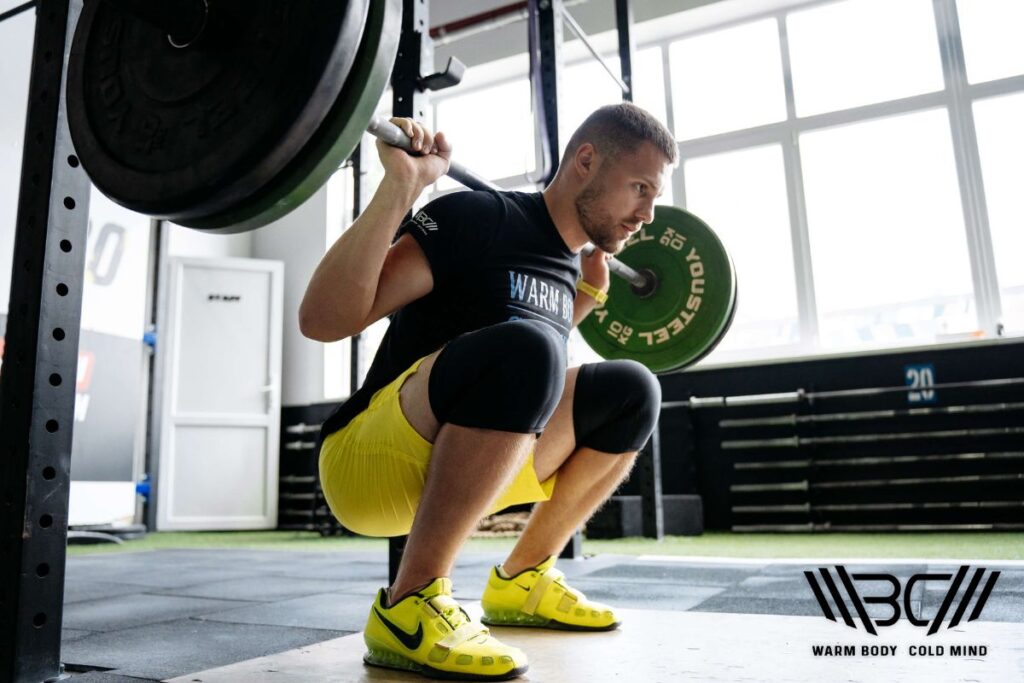
2. Methods of Machine-Washing Knee Sleeves
Many brands do not recommend machine-washing knee sleeves, but most still use them. Whether or not your washer has a gentle cycle, it’s still a bad idea because your knee sleeves can get caught up by the wringing function. This will damage the material.
If you still insist on machine-washing your knee sleeves, you should wash them themselves. Not with other clothes. Don’t wash them with your regular laundry products.
Also, put them in a laundry bag for better protection. Ensure the washer is in a cold setting.
What Is the Best Way to Clean Knee Sleeves?
The best way to clean your knee sleeves is to hand-wash them in a mixture of gentle detergent and warm water. It’s vital to follow your manufacturer’s care instructions.
Our recommended product is WBCM Weightlifting Knee Sleeves. Produced with a top-rated anti-slip system, our product provides stability, secur
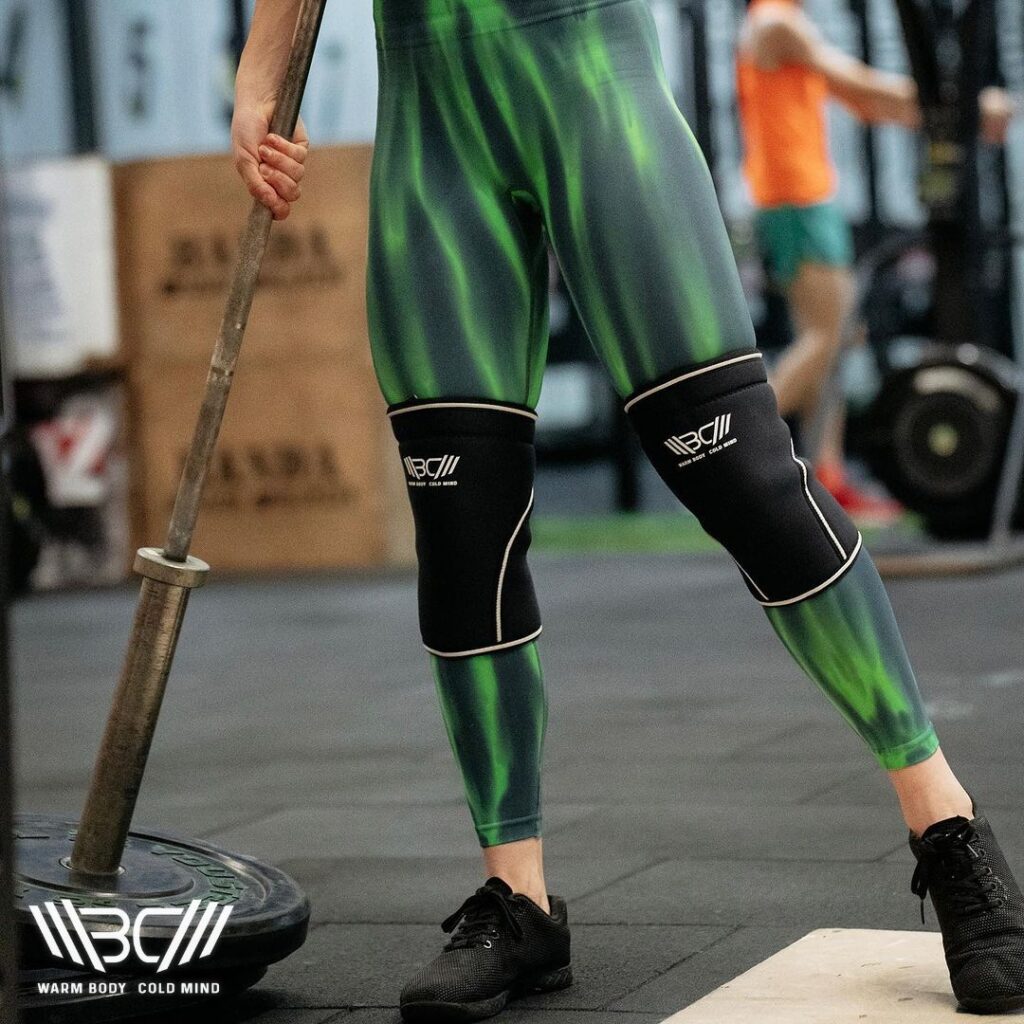
ity, support, and compression for weightlifters, powerlifters, runners, and other athletes. Designed with comfort and healthy living intentions, WBCM offers medical-grade support for the knees, ligaments, and knee joints.
How to Dry Knee Sleeves Correctly?
To dry your knee sleeves correctly, you need to air dry them in a shaded area, away from direct sunlight.
Knee sleeves typically take between 24 – 48 hours to air-dry completely.
If you machine dry your knee sleeves, it takes 30 to 50 minutes to completely dry.
Now you know how to dry knee sleeves, let’s learn some tips to preserve it.
4 Additional Tips for Extending the Life of Knee Sleeves
How you take care of your knee sleeves determines how long it will last. Here are some additional tips to extend the life of your knee sleeves:
1. Regular Cleaning
You should try to wash your knee sleeves at least once a week. However, this depends on your workout intensity and frequency. In addition, you should know how to clean knee sleeves properly, as discussed earlier.
2. Follow Your Manufacturer’s Care Instructions
It’s vital to follow your manufacturer’s instructions. They offer tips and recommendations on how to properly use/wash your knee sleeves. This will extend its lifespan.
3. Avoid Overstretching Your Knee Sleeves
Do not overstretch your knee sleeves because it will weaken the support and compression over some time.
4. Change Between Pairs
You should consider buying another pair of knee sleeves if you frequently work out. This will allow you to easily switch and enjoy your workout session. With two pairs, you will be patient enough to hand-wash one and let it air dry completely.
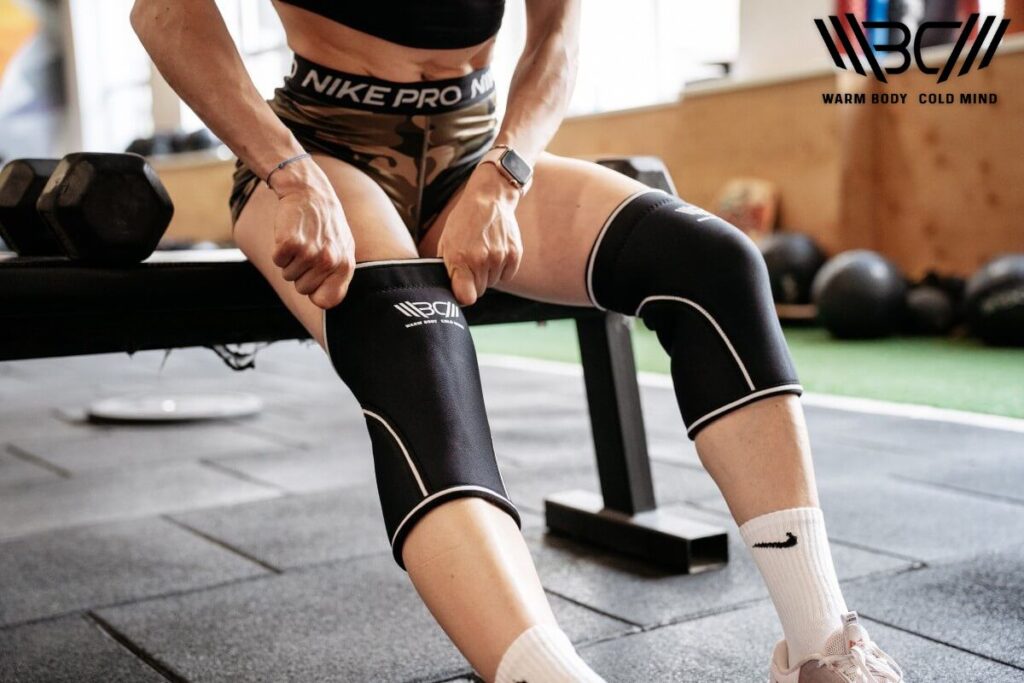
FAQ
How Can I Make My Knee Sleeves Smell Better?
You can make your knee sleeves smell better by not sealing it off in your gym bag until your next workout session. Instead, turn it inside-out and allow it to air dry.
In addition, you can make your knee sleeves smell better by adding vinegar when hand-washing it.
How Do You Clean Strong Knee Sleeves?
To clean your knee sleeves, you need to scrub them with non-abrasive cloth in a mixture of warm water and mild detergent.
Is It Ok to Wash Knee Pads?
Yes, it is perfectly OK to wash your knee pads. Washing them makes them smell better, extending their lifespan.
Can You Wash Knee Sleeves in the Washer?
Most brands don’t recommend washing knee sleeves in the washer. However, you can confirm with your brand’s care instructions.
Conclusion
Knee sleeves play a crucial role in different workouts, such as squats, weightlifting, and deadlifting. They reduce the risk of injuries and offer support for the knees.
In addition, knee sleeves improve your performance and workout sessions. However, they often get dirty and require cleaning.
Some reasons you should wash your knee sleeves include longevity, hygiene, and performance.
To wash your knee sleeves, gather all required items, such as detergent, warm water, non-abrasive clothes, and hand gloves. Make a mixture and scrub your knee sleeves with a clean cloth until they’re clean enough. Rinse thoroughly and air dry them in the shade for at least 12 hours.
Temperature, fabric type, type of materials, and detergent are essential considerations before washing knee sleeves.
Some additional tips to extend the lifespan of your knee sleeves include regular cleaning, following manufacturer’s guidelines, changing between pairs, and avoiding overstretching the materials.
Our recommended product is WBCM Weightlifting Knee Sleeves. Designed for all kinds of workouts, including powerlifting, weightlifting, and running. With its anti-slip support, you can always feel stable, safe, comfortable, and confident.
Have you washed your knee sleeves before? Did you hand-wash or machine-wash? How was the experience? Did you experience any challenges? We would love to hear your thoughts in the comments.
We hope you learned how to wash knee sleeves properly!
References:
- Mortaza, N., Ebrahimi, I., Jamshidi, A. A., Abdollah, V., Kamali, M., Abas, W. A. B. W., & Osman, N. A. A. (n.d.). The effects of a prophylactic knee brace and two neoprene knee sleeves on the performance of healthy athletes: A crossover randomized controlled trial. PLOS ONE. Public Library of Science.
- Mohd Sharif, N. A., Goh, S. L., Usman, J., & Wan Safwani, W. K. Z. “Biomechanical and functional efficacy of knee sleeves: A literature review.” Physical therapy in sport : official journal of the Association of Chartered Physiotherapists in Sports Medicine vol. 28 (2017): 44-52. doi:10.1016/j.ptsp.2017.05.001
- Vale, Eli N. and Smith, John D. “A Comparison of Materials in Knee Sleeves for Osteoarthritis: Affects and Function,” International Journal of Exercise Science: Conference Proceedings: (2022) Vol. 2: Iss. 14, Article 79.
- “Types of cleaning detergents, ” (2016). GSA. https://www.gsa.gov/real-estate/historic-preservation/historic-preservation-policy-tools/preservation-tools-resources/technical-procedures/types-of-cleaning-detergents (accessed January 1, 2024)
- Hygiene for sport and physical activity. (n.d.). Sport England. https://www.sportengland.org/funds-and-campaigns/hygiene-sport-and-physical-activity (accessed January 1, 2024)
Author: Sergii Putsov
PhD in Sport Science, Olympic weightlifting, Strength & Conditioning coach and fitness expert
Sergii Putsov is a professional weightlifter with over 20 years of experience and multiple national medals. He was a member of the National weightlifting team, competing in the 94 kg weight class. Sergii holds a master’s degree in Olympic & Professional Sport Training and a Ph.D. in Sport Science. After his athletic career, Sergii transitioned into coaching and is now responsible for designing training programs, writing blog articles, providing live commentary for international weightlifting competitions, and hosting sport and fitness seminars worldwide.

